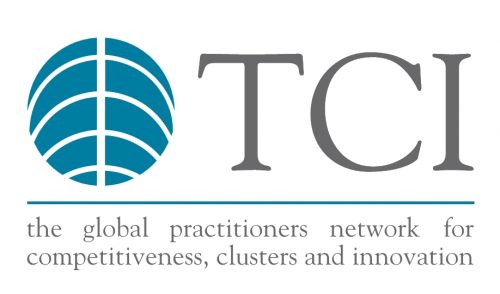
19/10/2016
Christian Ketels: “Thanks to clusters, Catalonia is much more attractive to foreign companies”
Christian Ketels: “Thanks to clusters, Catalonia is much more attractive to foreign companies”
Specialist in cluster policy Christian Ketels joined the 9th annual Catalan clusters meeting hold last month in Barcelona. In an interview with the Catalonia Trade & Investment public agency that works to attract foreign direct investment, he explained the importance of cluster policy in the attractiveness of the region.
Christian Ketels comes from the Institute for Strategy and Competitiveness (Harvard Business School) and is the President of TCI Network, a global platform of experts and organizations on clusters, innovation and competitiveness headquartered in Barcelona.
According to his definition, a cluster is a hotspot of activity in a certain type of sectors. It combines two aspects: it is a group of related industries -not just one sector- and is geographically concentrated.
In his opinion, Catalonia started with cluster efforts earlier than many other parts of Europe, and is globally seen as one of the leaders in this field. And it is still one of the regions that come up with new approaches, for example on using clusters as a platform for internationalization. Today, with more than 20 years of experience in cluster policy, in Catalonia 30 clusters are home to 1,700 firms, accounting for a turnover of 65 billion euros.
In Christian Ketels opinion, Catalonia actually is much more attractive to foreign companies (6,500 are currently set up in Catalonia) thanks to its clusters because they immediately get into an ecosystem of partners rather than just a greenfield site to invest in.
Christian Ketels comes from the Institute for Strategy and Competitiveness (Harvard Business School) and is the President of TCI Network, a global platform of experts and organizations on clusters, innovation and competitiveness headquartered in Barcelona.
According to his definition, a cluster is a hotspot of activity in a certain type of sectors. It combines two aspects: it is a group of related industries -not just one sector- and is geographically concentrated.
In his opinion, Catalonia started with cluster efforts earlier than many other parts of Europe, and is globally seen as one of the leaders in this field. And it is still one of the regions that come up with new approaches, for example on using clusters as a platform for internationalization. Today, with more than 20 years of experience in cluster policy, in Catalonia 30 clusters are home to 1,700 firms, accounting for a turnover of 65 billion euros.
In Christian Ketels opinion, Catalonia actually is much more attractive to foreign companies (6,500 are currently set up in Catalonia) thanks to its clusters because they immediately get into an ecosystem of partners rather than just a greenfield site to invest in.
More news
11/03/2015
Sustainability: the Barcelona Synchrotron Park focuses on birds and bats…
05/03/2015
Wastewater that produces green energy
26/02/2015
ALBA, CSIC and Alibava develop an X-Ray detector
20/02/2015
The pressure that makes conductivity higher: new record in the ICN2
11/02/2015
Presentation of the Big Data CoE Barcelona initiative
06/02/2015
Come investigate at the ALBA synchrotron: 2015 new call for proposals









